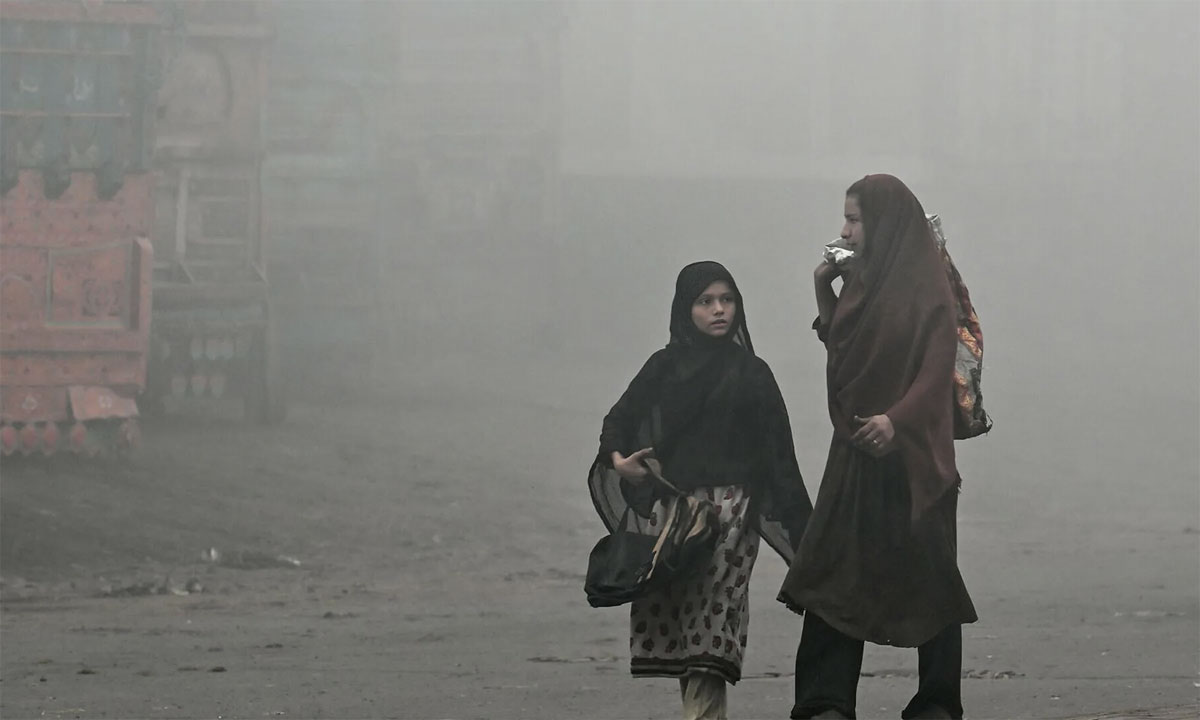
Published at: November 11, 2024 1:17 PM
Updated at: December 12, 2024 6:00 AM
On Monday, Abdullah Fadil, the UNICEF representative in Pakistan, called for urgent and intensified efforts to combat air pollution, highlighting that over 11 million children under five in the most affected districts of Punjab are exposed to harmful smog.
Last month, the air quality in Punjab was declared a "calamity," prompting the closure of schools in major cities across the province until November 17 to reduce children’s exposure.
Additionally, public access to parks, zoos, playgrounds, and museums has been restricted until November 17 in an effort to minimize public exposure to the smog.
The Air Quality Index (AQI) in seven Punjab cities was recorded above 400 today, with Sialkot reaching an alarming 774. AQI levels above 300 are classified as "hazardous" to health.
In a statement released from Islamabad, the UN Fund raised alarm over the record-breaking air pollution levels in Lahore and Multan last week, which resulted in the hospitalization of several people, including many children. According to a BBC report, the pollution has become so severe that it is visible from space.
Abdullah Fadil, UNICEF’s representative in Pakistan, expressed deep concern over the exposure of more than 11 million children under the age of five to harmful smog in the worst-affected districts. He pointed out that before these unprecedented pollution levels, air pollution was responsible for about 12 percent of deaths in children under five in Pakistan.
Fadil stressed the devastating impact the “extraordinary smog” could have, particularly on young children and pregnant women. He explained that children are particularly vulnerable because they have smaller lungs and weaker immune systems. Prolonged exposure to polluted air can severely affect the development of babies' lungs and brains, causing lasting cognitive issues.
He also highlighted that pregnant women exposed to high levels of air pollution are at increased risk of premature births, respiratory problems, and delivering babies with low birth weight. The long-term effects of this smog will be assessed, but Fadil warned of its catastrophic consequences on public health, especially for the most vulnerable groups.
Fadil highlighted that the education of nearly 16 million children in Punjab has been disrupted due to the closure of schools until November 17. As a result, the government has switched to online learning for students.
He urged the government to uphold every child's "right to clean air," stressing that reducing emissions from agriculture and industry, and promoting clean, sustainable energy and transportation, are no longer optional—they are essential for protecting children's health today.
Fadil also called on authorities to strengthen the enforcement of existing regulations and to introduce stricter emission controls for long-term protection.
He emphasized that COP29 presents a vital opportunity for governments to turn climate commitments into tangible actions before it's too late.
"We cannot allow our children to breathe toxic air," he said. "We cannot let the health, education, and well-being of millions of children be compromised. Immediate action is needed for the sake of our children’s future."
Share to